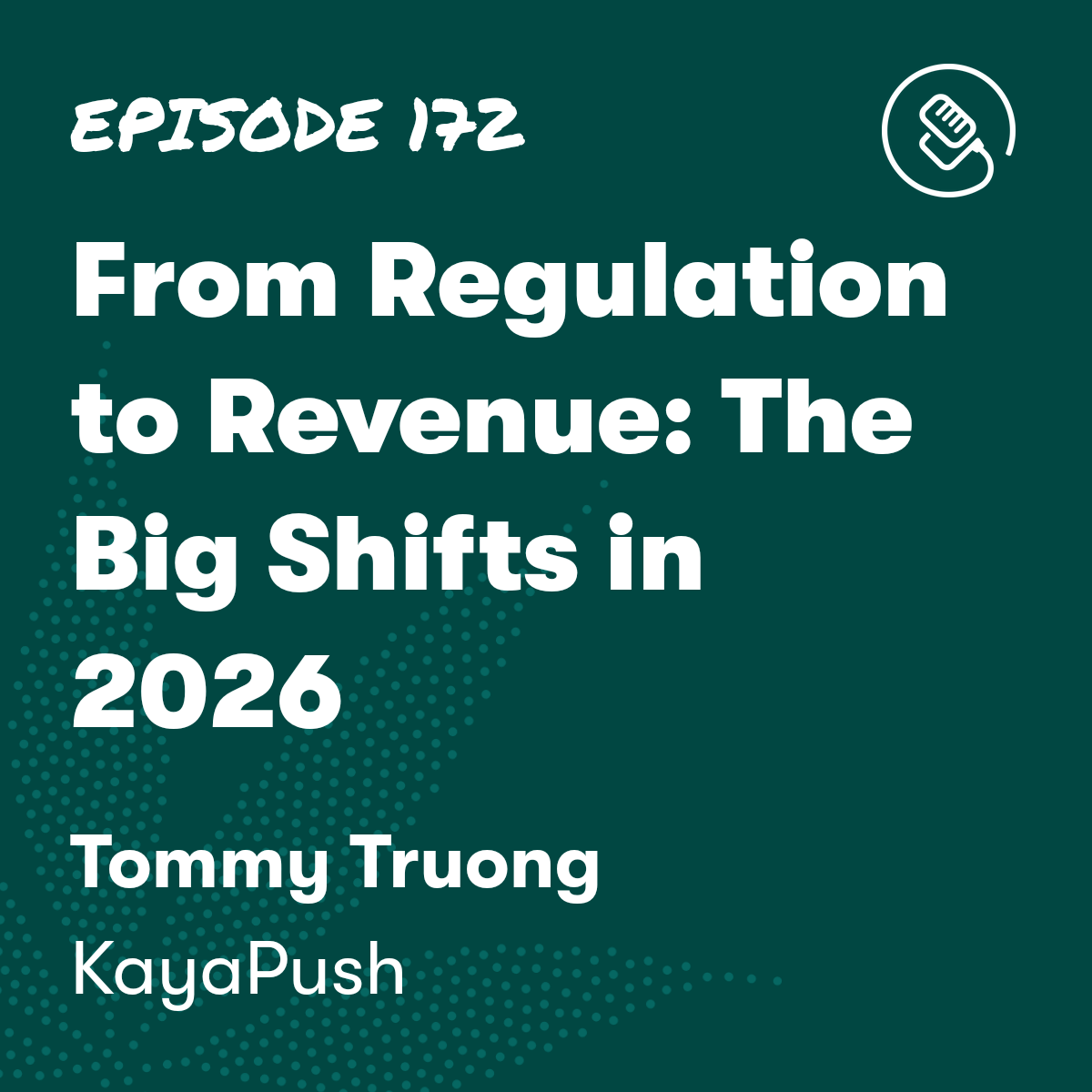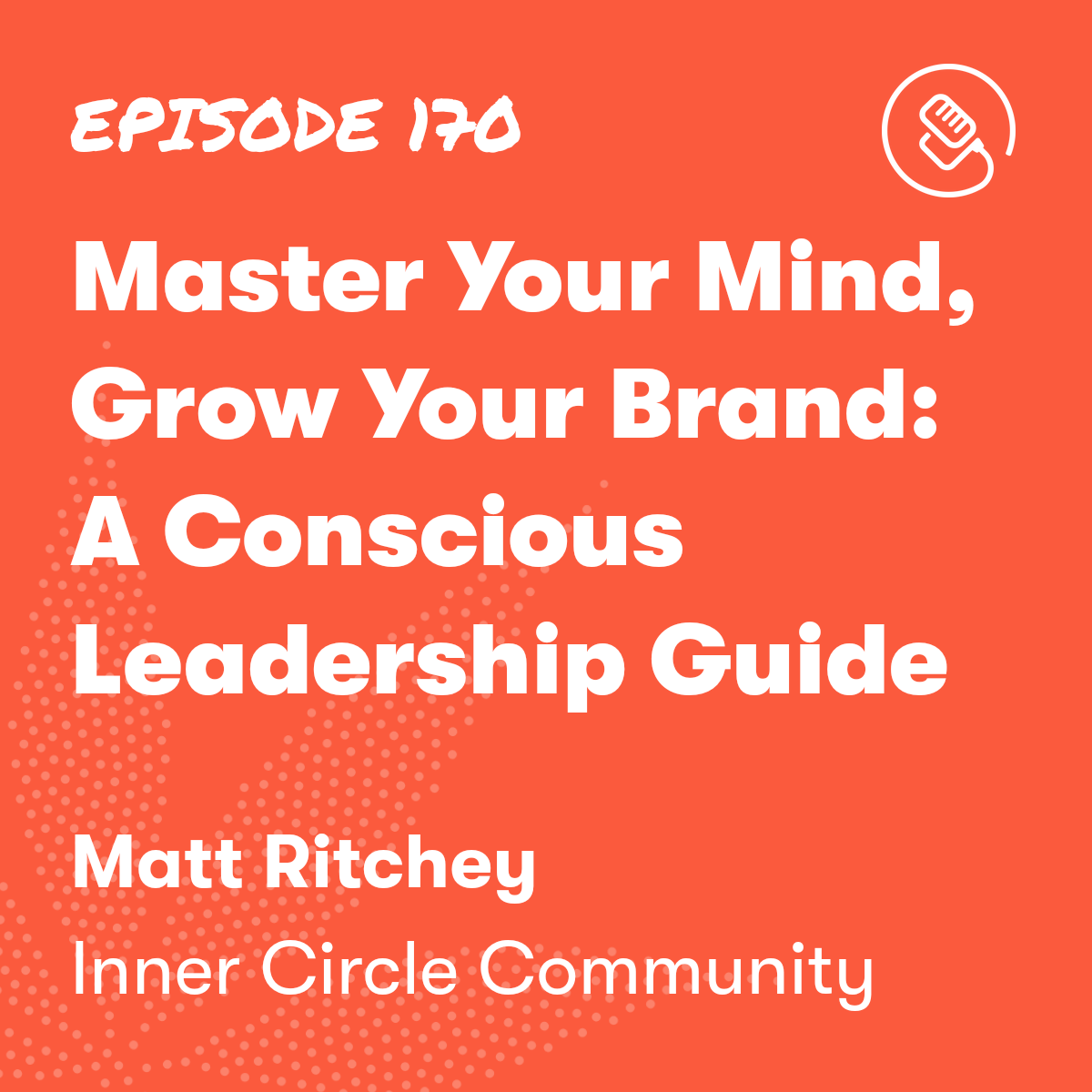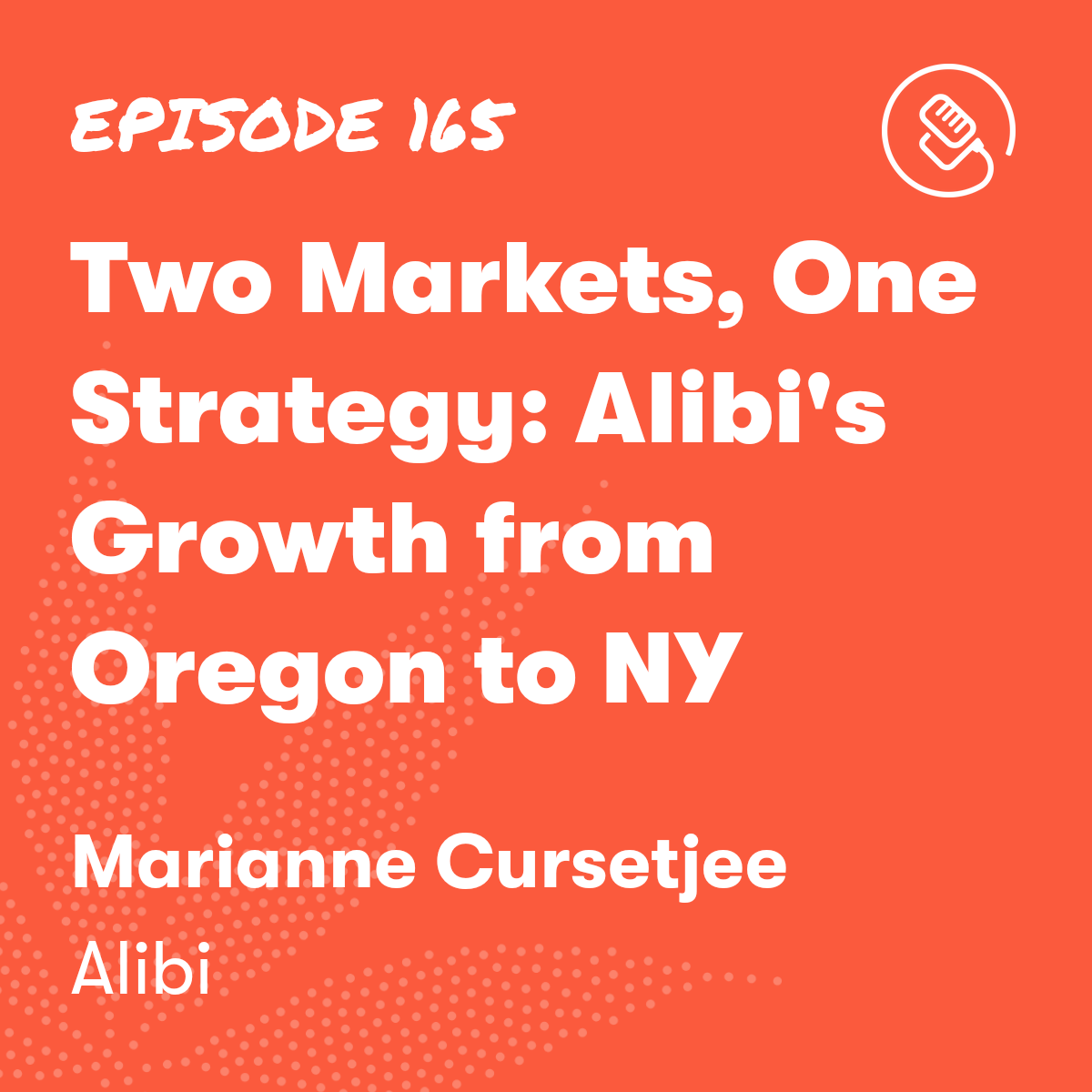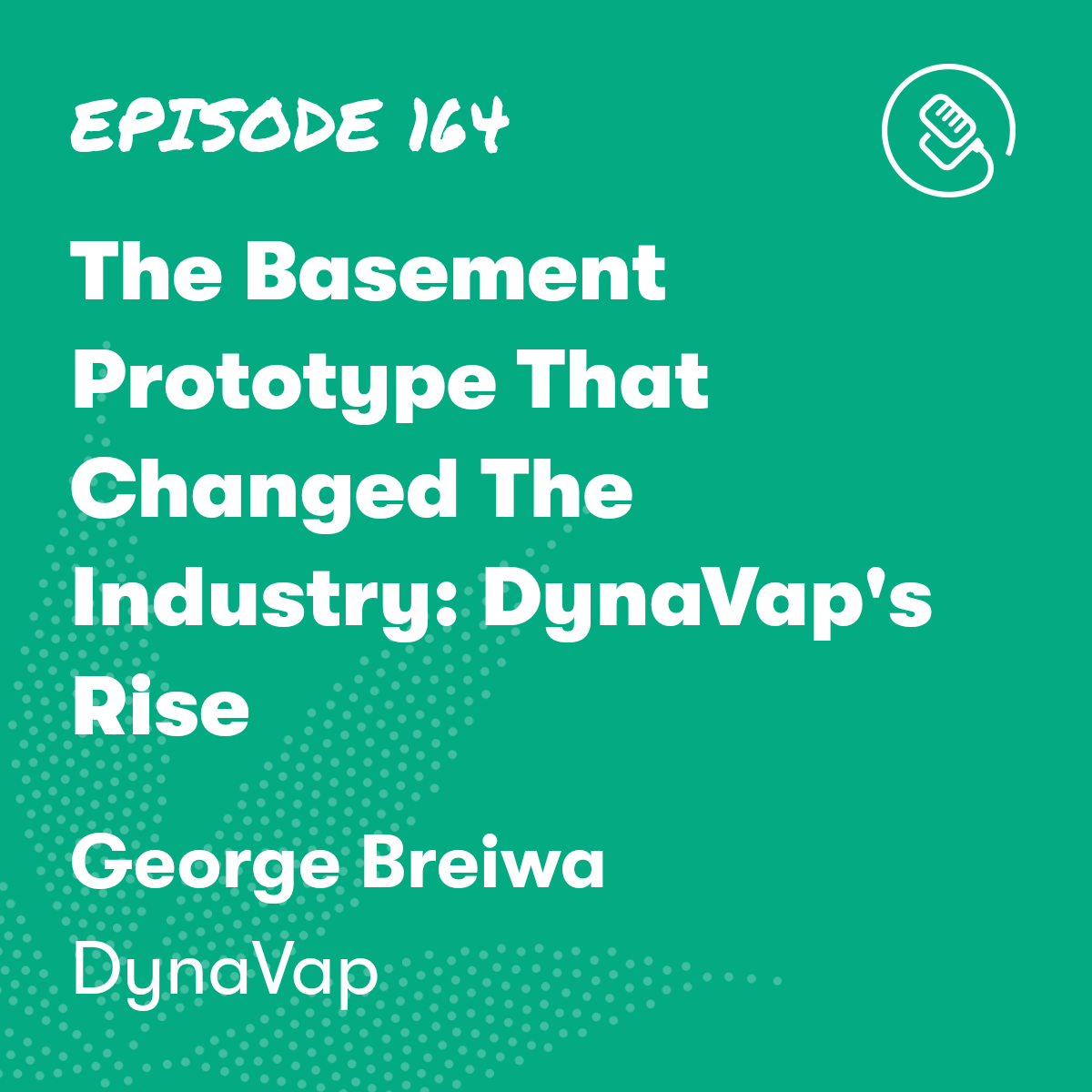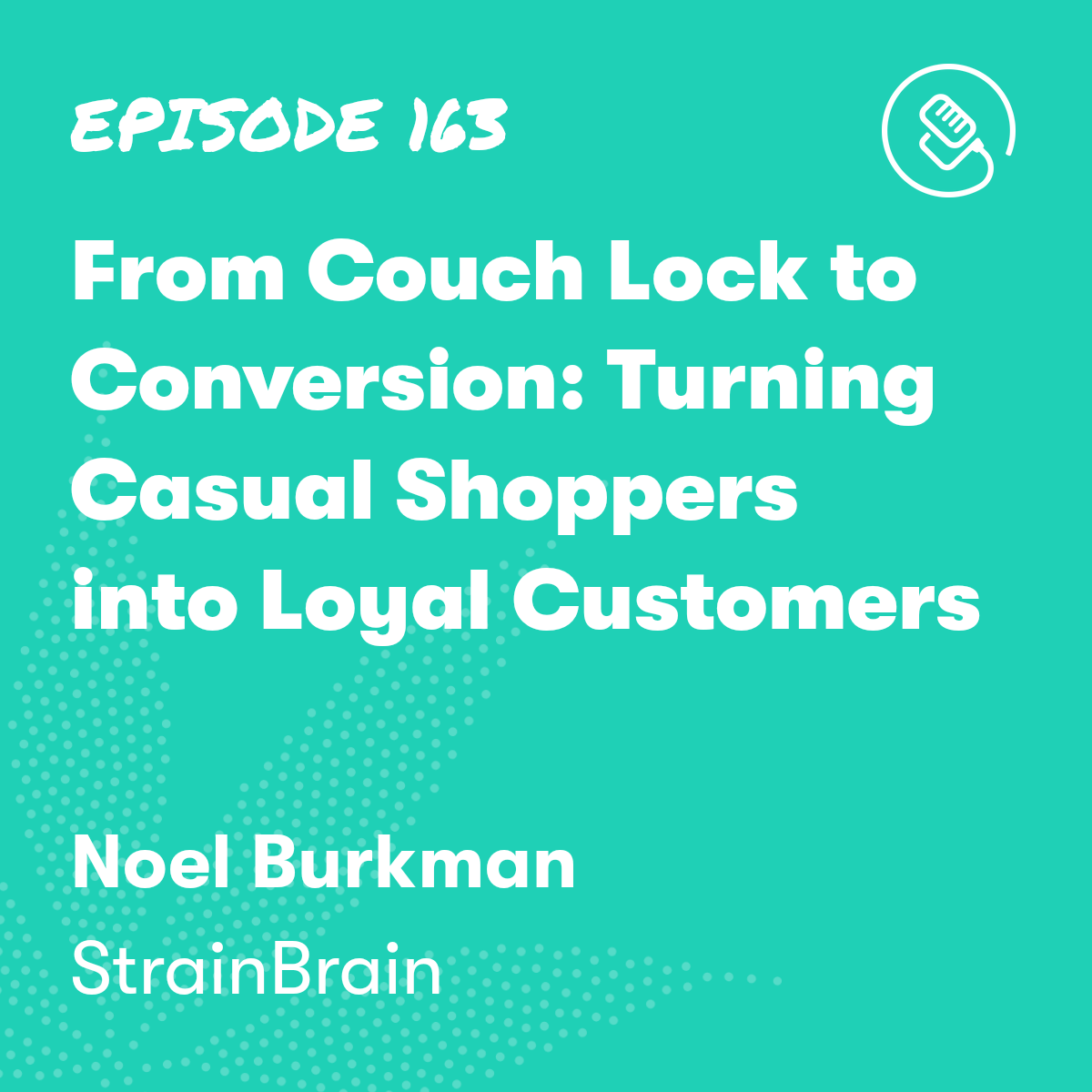

Planning Strategies to Propel Your Business to the Next Level
Episode Description

Episode Transcript
Abigail Davidson: Business owners will get caught up in non-income generating activities. So they're thinking like my website and my admin and my filing cabinet, and it's like, a client, just get a customer.
Just get the product. Just get the thing that you're gonna sell and sell it. Like do what it is that you came here to do. You do what you set out to do, and then the rest will follow
Tom Mulhern: Welcome back to the Kayak Cast podcast. I'm your host, Tom Mulhern, and I am so glad that you've joined the podcast Today. Today on the show I have a conversation with Abigail Davidson, who is the c e o and founder of Old Woods Business Services out of Maine.
Abigail works with businesses during that incubation period to really set themselves up for success. She comes alongside potential entrepreneurs who are looking to start something new in the cannabis industry and really gives them the tools and the procedures to get started and to set themselves up for success.
Abigail and I talk about, everything from, you know, delegating and finding the right people to fill in the gaps in your business to saving and planning for tax bills because the last thing that you want is for a giant tax bill to come outta nowhere, and so Abigail's advice.
Is to really plan and think about those things before they happen. So I really hope you enjoy this conversation with Abigail Davidson from Old Woods Business Services.
Tom Mulhern: Abigail Davidson is the owner and founder of Old Woods Business Services, a bookkeeping and management consulting business specializing in up and coming industries based out of Albany, Maine.
Abigail received a BA in economics from the University of Lynchburg. Old Woods brings their unique personality to their clients and their clients. With their goal of being transparent with their clients to make sure they have the highest level of satisfaction possible. Abigail, welcome to the show. Thank
Abigail Davidson: you. It's exciting tobe here.
Tom Mulhern: So tell me a bit about your background you know, where you went to school and also how did you end up in cannabis and how did you end up in Maine?
Abigail Davidson: I grew up in an accounting household, so CPAs and bookkeepers everywhere. And I was a cannabis user in college and I was like, it would be so cool if it was legal and what a world it would be to be a part of that.
After college came home, moved to New Jersey for 10 years and really built my accounting experience there in, in regular industry bars and restaurants, property management some construction companies all, all of the things. And I didn't like the hustle and bustle of New Jersey.
And I decided I wanted to move to Maine and it was legal up here. So before I moved, I just started reading. I was reading a lot. Like whenever I had a chance, I would read about 280e I would just read about like industry news and just stay on top of what was going on.
There was nobody servicing these people like this and banking was new. So I moved in 2018 and they were like two months before I got there here.
The banks were. One, one or two of them were welcoming them. So it was really an like perfectly aligned opportunity for them to start really doing actual accounting with proper software. But it was still like gray market. Like they were still set in their old ways. Like this is how we've done it with like plastic baggies rolled up and like, you know, let's bargain the prices and.
You know, whatever's working, I'm getting the sale, I'm making the money, so who cares? But this is an emerging industry, so you really need to set some professionalism and like raise the bar a little bit.
Tom Mulhern: So what exactly does Old Wood's Business Services do?
Abigail Davidson: Our primary service is like bookkeeping for cannabis businesses. That's like the core. But we do, I've been along this ride with so many people building new businesses. Even other industries, like business incubation is just so fun. Like, it's just fun for me. So that's like, it's not the core of my business, but it's what lights me up.
We recently launched a management bootcamp. Again, it was just fun and like, let's see what happens. And then we're, you know, based on all the experience I've had, I've launched like a consulting coaching, you can use the word coaching.
I feel like that's buzzy. But it's really like parallel to the accounting. It's like consulting. So, those are our core services.
Tom Mulhern: Well, and I want to dive into each one of those, but why should someone hire like a cannabis specific bookkeeper like yourself? Like, can't they just hire anybody off the street or, or what, what's the benefit of hiring someone that actually knows what they're doing?
Abigail Davidson: if you're just hiring the regular bookkeeper who has no experience or even says they have experience, but they're not posting anything into cost of goods, you are asking for trouble, you're asking for an audit. And in that audit you are going to be destroyed because you're taking expenses that don't belong as a deduction on the federal return.
So a lot of states now will allow you to take regular business deductions, but the feds still won't. So it's really important that you're tracking those things and you're properly supporting evidence and if you are just taking everything you are gonna end up with, you know, depending on the size of your business, huge penalties and interests and additional tax.
And a lot of people are chasing the green rush and they think they can just dive right into it cuz they have 20 years of bookkeeping experience, but they don't have any idea what the rules are. you need to know that you're working with someone who knows. And the simplest way is just to ask like, what do you know about 280e?
And if they don't say anything or can't answer the question, then there's a pretty quick answer. I see it all the time where I'm picking up accounts that are unreconciled and loans aren't handled properly, and it's like outside of the cannabis issues, there's still so much to lose by hiring someone inexperienced.
Tom Mulhern: What are some of the biggest mistakes that businesses make when it comes to finances and bookkeeping in the cannabis industry?
Abigail Davidson: You could do a lot of things wrong. It's so like, not tracking cash expenses. Just because they're occurring in cash doesn't mean they're wrong or taboo. You know, they're just as valid.
They're just not in the traditional banking format. You can always miss like owner investment. Like say you got something on your personal card cuz you didn't have your debit card or you didn't have cash. Like those are, that's an an any industry thing too that I always spend a lot of time at the end of the year looking for.
Making sure that you're getting every possible. Expense, even if it's not a cost of good sold item. Those are obviously like we do not wanna miss those and I spend a lot of time having monthly conversations about that. And then the non cost of good sold are just as important cuz you need to know your numbers, even if it's not, if it's beyond the 280e scope.
Tom Mulhern: Part of that is what you do in your consulting. Like you said, you help dispensaries become professional organizations. I really liked that phrasing. So how do you do that from startup to launch?
Lot of my clients and just, this is the nature of an emerging industry, right? Is that the legacy clients are, coming to me like, in all honesty, with like plastic grocery bags of receipts that smell like weed and that's totally okay. Like toss 'em all in a bag. That's fine. If that's where we're starting, at least we're starting somewhere.
Abigail Davidson: And even if your organizational process is a grocery bag, I'm okay with that cuz you've got some, you've got some system in place and we're starting somewhere. I also have people who are like two, three years later like, oh, I found this, I found this, I found this. That can't happen. Like you get your window and then your window is closed and that's the end of it, and that's when you file your taxes.
You don't get the chance to find new receipts. So we always start there. And then we develop systems. And the systems are always different depending on the client's needs.
it starts from grocery bags of receipts to payroll and then like as far down, like tax planning and like the December 15th call, like, Hey, you know, you have all this cash on hand.
What are you gonna do with it? And let's try to increase your cost of good sold before the year is out. So they, they come a long way.
Tom Mulhern: Do the services that you offer, like obviously it helps them become more professional, but does that help businesses stay compliant as well, because that's, Always the big fear of losing compliance.
Abigail Davidson: Like the more I think about it, like all industries have some level of compliance to maintain. So, you know, it seems like an industry buzzword, but it is normal business. Again, like being compliant, I have to be compliant. And com, you know, what is compliance? So compliance from my angle, like there's obviously legal angles that are not my department. But when it comes to finance, standard compliance is being ready for an audit from whoever. Paying your taxes, paying your taxes on time. And if you're not paying them on time, making sure you're addressing that like right away.
Keeping your receipts, making sure that anything that doesn't have the proper documentation, gets the proper documentation. How do you manage your employees and their files?
Then we have in Maine, and I know this is going on in a few other states as well banking compliance, which is a new thing and has been very touchy for everyone because it's quite invasive and, and I'm getting like this vibe where it's just a little bit discriminatory towards the industry if I'm gonna be blunt about it.
But we have to report everything to them. They're not allowed to use cash anymore if they're with like this one particular bank which is crazy, like a normal business doesn't have that. Managing the banking compliance has really become like a top tier obstacle.
So there are a lot of elements to compliance, I guess ultimately is what I'll bring that back to. And we just check, check one off at a time and then the new one comes out and we check that off and the new one comes out there.
It's always evolving. We just try to stay on top.
Tom Mulhern: Once you get a handle on one, then a new thing will come out and a new thing will come out. It's, it must be so frustrating in your role because you're constantly having to shift and adjust the way you do your business to align with the government regulations that come out that.
Abigail Davidson: It's frustrating for my clients for sure. Less frustrating for me cuz I know what I, you know, this is part of. An emerging industry. So it's, that's like the fun in it is like staying on top of these things. But for them, they're like, I just want to grow and sell, like leave me alone people. And so I'm like, well, I can help with that.
You know, it's like I do my best to manage some of these things without having to go through them.
Tom Mulhern: Now you also offer, like you said, a management bootcamp. How did you develop this management bootcamp and how can people access it?
Because I know this is unique in this industry to have some of this management training. So tell me a bit about that.
Abigail Davidson: Years ago, I'm like, really just thinking, how can I serve my clients without like having to drive and give my actual time one-on-one? How can I serve more people at one time? Like, that's scaling, you know, you're scaling your business that way, and I would like to scale my business. So I'm like, how do I do that?
I could offer a DIY bookkeeping, but that's like everybody's trying to DIY it anyway. And it's ill advised from my angle, like, until you really know what you're doing, a lot of the clients I pick up are like, oh, like I hate to be like this, but my wife's been doing it and like, that's a real, it's a real thing and I don't wanna like put it, you know, categorize it like that, but they, it falls apart.
And I'm like, let's just not do that yet. Let's start with something small and fun and like easily attainable. This is cannabis, directed to cannabis, but I also have a few like contractors who are just like struggling to manage these people. And it's like, well, these are all common themes.
it kind of gives them the access to the information and the accountability without having to have one-on-one with me and pay my one-on-one rates. So, I graded this five day boot camp. The videos are like 10 to 15 minutes. There's a workbook that comes along with every one of them a couple of the days.
There's like little bonuses but it's, it's just. Condensed and focused and deliverable to you in your office, in your privacy of your office. But then beyond that, you get lifetime access to it, and you can share it with your team as you grow and make sure that they're all on the same page with you about what your mission is.
Tom Mulhern: I know I've been in those financial meetings where you're, you're talking with someone who like yourself, who really knows what they're talking about, and they're like, yeah, so you need to make sure that your SOPs are all up to date and you've got your 280e and you're like, what are you talking about?
So being able to go back and like, you know, take it at your own pace if you're not. You know, comfortable with finances or, or whatever it is, or the business side of it, or business management, and go back and watch it would be so valuable.
Abigail Davidson: That's a big part of my mission with it is to keep you inspired to keep working on these things because these are not things that you set and forget. They're not, you have to revisit them as often as you have to revisit them. Like it could be weekly for a while. It could, you could build a perfect system and it could be yearly.
I really wouldn't let anything go beyond that. Even if it's working well, you still need to review it and make sure Breaks it down into digestible chunks and it, and should keep you focused and excited and reignite the fire, why you're here and make sure that your team feels it with you.
Tom Mulhern: During those session, Do you talk about, you know, standard operating procedures and practices for dispensary owners, because I know, you know, having that in place can really help you be more effective in building that business.
Abigail Davidson: Really what it's all about. And that's how you continue to evolve your, your standard operating procedures. SOPs is you identify your problems and then you put it, come up with a solution. You put it in writing and you. Enforce it, and you just wanna make sure throughout that whole process that it's aligned with your values and aligned with your mission.
And identifying the mission is the beginning. And if you're not super clear on that, like that's where we would start.
Tom Mulhern: Now I know your passion, like you said, your, your passion is helping businesses start.
Abigail Davidson: what are some of the most important things that people need to be thinking about when they're starting their business?
A common theme is that business owners will get caught up in non-income generating activities. So they're thinking like my website and my admin and my filing cabinet, and it's like, a client, just get a customer.
Just get the product. Just get the thing that you're gonna sell and sell it. Like do what it is that you came here to do. You do what you set out to do, and then the rest will follow. But it's a common theme that people get wrapped up. Cuz that's, it's fun, but it's also, you're not gonna get anywhere by just doing like the bookkeeping before you have revenue.
Build your business and then hire the bookkeeper, like, I'm here to help and consult and let you know what I've learned over the years and help keep you focused on what it is you're doing.
But there are certain things that you don't need to be doing it.
Tom Mulhern: and I've had to walk away from a few scenarios where the person just refuses to get out of this like administrative phase and
Abigail Davidson: If you don't wanna listen and you don't wanna do like the actual income generating activity, then I like ethically can't stay here. Cause like you're paying me out of pocket and I'm not just gonna keep advising you. And have you not follow through with any of it.
It's, it's not healthy for you. It's not healthy for me. So it was a, it was a sort of move on from this scenario. But I look out for those red flags now right away cuz it's like, let's get on with the show that we're here for.
Tom Mulhern: Well, you've already given us a bunch, but are there any like life hacks? I'm all about life hacks that dispensary owners can be more efficient in running their business.
Abigail Davidson: Delegate, delegate, delegate. Stay in the lane that you love and delegate the rest out. So if you love selling and you love bud tending, that's. Come out, like people are gonna see that in you. Your team's gonna see that your customers are gonna see that. So stay in the bud tending department. If you love cultivating, stay in the cultivation and then let other people, like hire qualified people around you that you trust, that have aligned values with you and delegate to them, entrust that they're gonna represent you the way that you expect to be represented.
So, delegate.
Tom Mulhern: That's really good because most business owners in the cannabis sphere, they probably were, you know, either bud tenders or, or they used cannabis, and so they're passionate about the plant, but they need to delegate that out and focus on the the things that really matter to launching that business.
What are some of the top business goals that dispensary owners should be making? You know, whether they've launched or maybe they're just, they're just launching. What are some of those business goals that people should be aiming at?
Abigail Davidson: So I would love to say revenue building, but that's not what I'm gonna say. I'm gonna say tax planning. Poor tax planning has led to like a crisis in the industry with these ridiculous tax bills. Make sure you have an aligned cpa. Not all CPAs are equal. They're not all the same. Some are gonna just dump numbers in and not think about it, and some are gonna analyze it to like three, four year late returns.
So find someone who's aligned with you. Prepare for taxes. It's gonna be your biggest and most undigestible expense that you have, and it is not a cost of good sold. And if you are not planned and prepared for it, it will put you out of business. So as much as I'd like to say, grow, grow, grow, and make money, make money, I'm actually gonna say, make sure you don't get shut down because you can't pay your tax bill.
just making sure you're prepared for the worst hope, for the best. Prepare for the worst.
Tom Mulhern: You've helped so many businesses launch grow into, like you said, like in the cannabis sphere, but also in in other areas. What's one tip that you'd have for a dispensary owner to grow their business?
Abigail Davidson: Delegate, delegate so you can scale. You know, you can't scale if you're doing it all by yourself. You just can't. I mean, you can't grow and sell and expect to be able to manage even more and more and more. So you have to be able to start small, you know, if it's the selling, you like to do a great way to scale your business.
If your wholesale purchasing is to grow, there's more margin in that. So find a cultivator for your team. And then, you know, you can build those departments and you can build departments beyond that. So start with expanding departments. There's, when you're doing it all in house, the profit margins are a lot greater.
If you're outsourcing it, you know, you, they are, they're increasing their margin, so you can only increase a little bit. But if you're doing it all, then you have a lot more flexibility, and that's really where the profit comes from. It is not from the turnover, it's from building out the verticals within your company?
Tom Mulhern: That's such good advice. So Abigail, how can people, you know, find more about you and your company? Maybe join the management bootcamp? Is that open to anyone in, in the us? Like you don't have to be in Maine.
Abigail Davidson: Worldwide. Yeah. I know it's a crazy thought, but yeah. My website's old woods.co. And you can find out anything about the business and me on there, but I'm also on Instagram Old Woods dot accounting. I, I'm pretty heavily active on Instagram. I'm also on LinkedIn.
I'm trying to build that back up. I've kind of abandoned the LinkedIn platform, but it's there and it's a good place. So, yeah, Instagram, LinkedIn, old woods.co. And the management bootcamp's right on there. It's $11. I was gonna do it for $222, but I was like, you know what? Like, let's just make this accessible.
Tom Mulhern: Thank you so much for being on the show. I follow your Instagram and you, you're really active on there, so I'd encourage people to go check that out and we'll have all of the links in the bio and on our website and stuff.
But Abigail, this has been great and I really appreciate you taking the
Abigail Davidson: Yeah, likewise. Thank you for having me.
Tom Mulhern: Abigail's advice of delegating and finding the right people for your business goes right in line with everything we do on this podcast.
Our whole goal is to help you be more effective, to be more successful, to help your cannabis business grow. And I really, really appreciate her advice. I appreciate her advice of planning wisely of looking at those numbers and those things that are coming down the road and, and, and planning for that.
And if you're interested in finding out more about Old Wood's Business Services and maybe taking that management bootcamp, or even doing some one-on-one coaching with her, I would definitely encourage you to reach out to Abigail. We've got all of her links in the bio of this podcast, but, but if you're struggling, if you're struggling right now to grow your business, Abigail's there to help.
We also have some really great resources on the Kaya Push website. Head over to kayapush.Com. You can find all of our blogs about budtender education. We've had some great guests on the podcast talking about these specific things of starting, right, starting your business, right?
So I want to thank you for tuning into the podcast. Make sure that you subscribe to the podcast so that you can hear more conversations like this.
